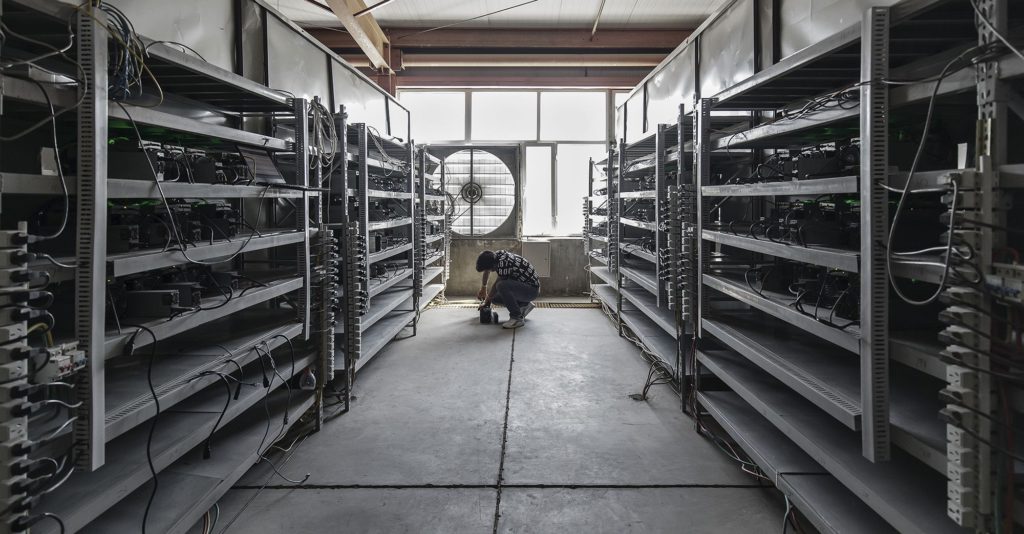(Bloomberg) — The planet-warming emissions created by crypto mining rose after China outlawed the industry last year and miners lost access to the country’s clean hydropower, a new study says.
The share of renewable electricity used to power the Bitcoin network dropped from more than 40% in 2020 to about 25% in August 2021, according to estimates from a study published in energy research journal Joule. Miners that fled China were more likely to power operations with natural gas, doubling its share of the electricity mix to about 31%. And while Chinese miners also burned coal to power operations, the miners that moved to Kazakhstan began using a type of coal with an even higher carbon content, the study said.
“After the Bitcoin miners got kicked out of China, they were forced to migrate to countries like the U.S. and Kazakhstan and unfortunately that has led to a reduction in the use of renewable energy sources in the network,” Alex de Vries, one of the authors of the peer-reviewed study, said in a phone interview Friday. “Bottom line is the carbon intensity of the network has gone up.”
Bitcoin mining uses computers that run complex calculations to maintain the cryptocurrency’s network, with successful miners rewarded in the virtual currency. Climate advocates have condemned the industry for sucking up as much electricity as entire countries, while miners say their operations often run on clean power and can encourage the development of less polluting energy sources.
More stories like this are available on bloomberg.com
©2022 Bloomberg L.P.











